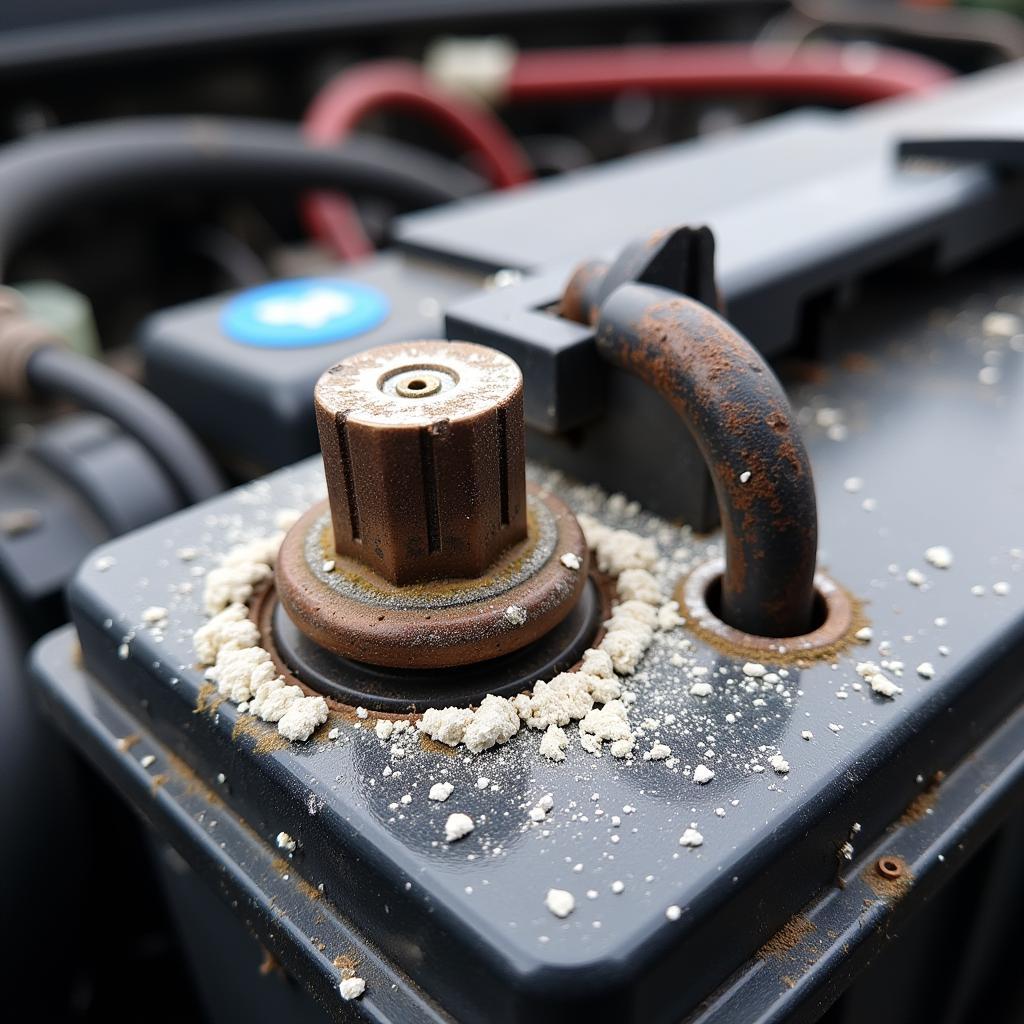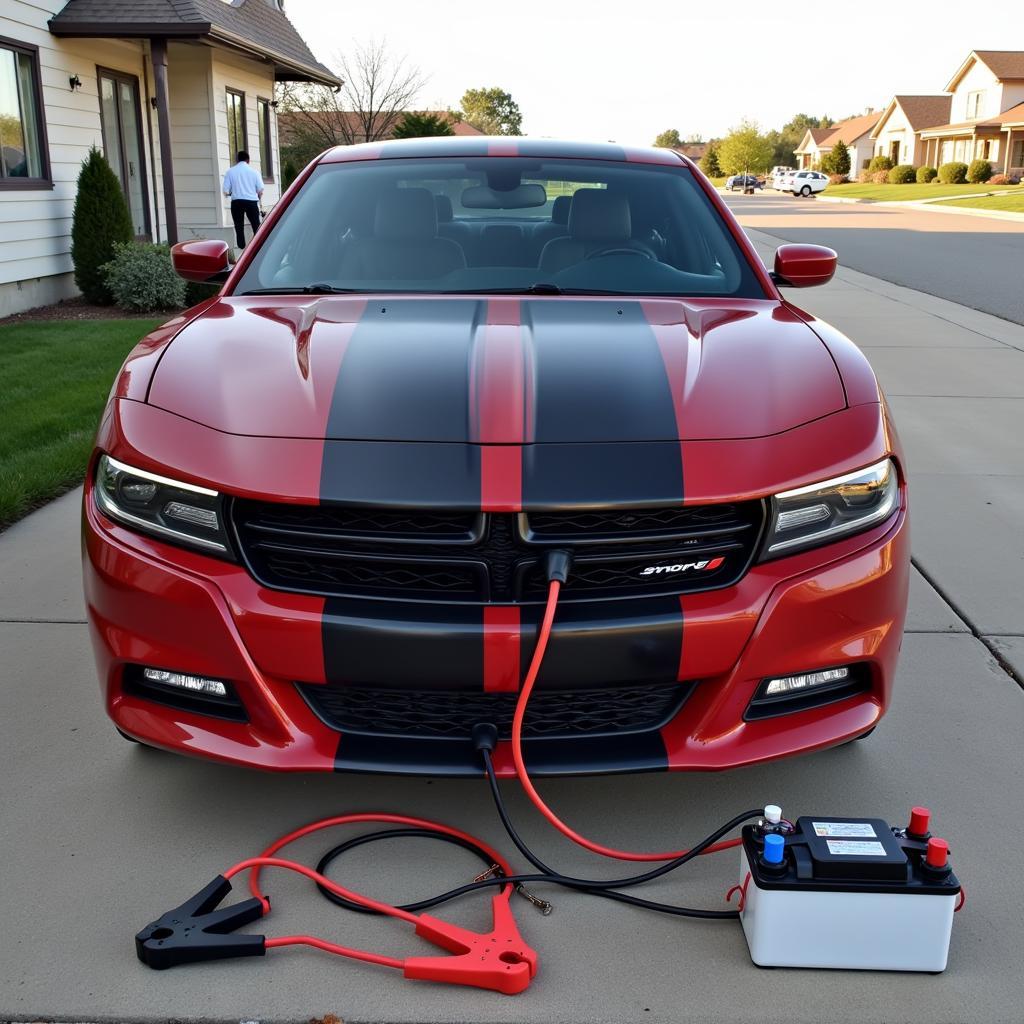If your Dodge Charger battery keeps dying, you’re not alone. This is a common issue, and finding the root cause can be frustrating. This guide offers expert advice on diagnosing and fixing the problem, from simple checks to more advanced diagnostic techniques.
Many Dodge Charger owners experience battery drain issues. Sometimes, the problem is obvious, like leaving the headlights on. Other times, the culprit is a hidden parasitic draw, silently draining your battery overnight. Identifying the source of this drain is key to preventing a dead battery in the future. For a complete understanding of parasitic draw and how to test for it, see our guide on testing for parasitic draw on car battery.
Common Reasons Your Dodge Charger Battery Keeps Dying
Several factors can contribute to a Dodge Charger’s battery constantly draining. Let’s explore some of the most common culprits.
Faulty Alternator
A malfunctioning alternator can prevent the battery from charging properly. This often leads to a dead battery, especially after driving short distances.
Parasitic Draw
This is a common culprit when a battery drains while the car is off. A parasitic draw occurs when an electrical component continues to consume power even when the ignition is off.
Old or Failing Battery
Batteries have a limited lifespan. An old battery may not hold a charge effectively, leading to frequent dying. Look for signs of weak battery to determine if yours needs replacing.
Extreme Temperatures
Extreme heat or cold can significantly impact battery performance. Cold weather can reduce a battery’s capacity, while excessive heat can accelerate its deterioration.
Corroded Battery Terminals
Corrosion on battery terminals can disrupt the flow of electricity, leading to starting problems and a drained battery.
 Corroded Car Battery Terminals
Corroded Car Battery Terminals
“A simple battery terminal cleaning can often solve recurring battery drain issues,” advises John Miller, ASE Certified Master Technician. “It’s a quick and easy fix that many car owners overlook.”
Diagnosing the Problem: Dodge Charger Draining Battery
Pinpointing the exact reason your dodge charger draining battery requires some investigative work. Here’s a step-by-step guide to help you diagnose the issue.
- Check the Alternator: A simple voltage test can determine if your alternator is charging correctly.
- Perform a Battery Amp Draw Test: This test helps identify any parasitic draws that might be draining your battery while the car is off.
- Inspect the Battery: Look for any physical damage, cracks, or bulging. Also, check the manufacturing date to determine the battery’s age.
- Clean the Battery Terminals: Use a wire brush and a baking soda solution to remove any corrosion.
What to Do If Your Dodge Charger Battery is Dead
If your Dodge Charger battery is completely dead, you’ll need to jump-start it or use a battery charger. See our guide on will a car battery charger charge a dead battery for more information. Once the car is started, drive it for at least 30 minutes to allow the alternator to recharge the battery. If the problem persists, seek professional help.
 Jump Starting a Dodge Charger
Jump Starting a Dodge Charger
“Remember, addressing a dying battery promptly can prevent further damage to your vehicle’s electrical system,” says Sarah Chen, Electrical Systems Engineer. “Don’t ignore the warning signs.”
Conclusion
A Dodge Charger battery that keeps dying can be a frustrating experience, but with proper diagnosis and troubleshooting, you can identify and resolve the issue. This guide has provided a starting point for identifying the most common culprits. Remember to perform regular maintenance, such as cleaning the battery terminals and checking the battery’s health, to prevent future problems with your Dodge Charger battery.
